The students in Case Western Reserve University’s undergraduate Class of 2028 aren’t the only new faces on campus this semester. The university also welcomed new tenure-track and tenured faculty members to its ranks, including many at Case School of Engineering.
Earlier this semester, we asked new faculty to share their thoughts on their careers and research endeavors. Get to know some of the new members of Case School of Engineering’s ranks, and check back tomorrow to hear from some of the new faculty members at the School of Medicine and the College of Arts and Sciences.
Answers have been lightly edited for length.
Brian Krupp
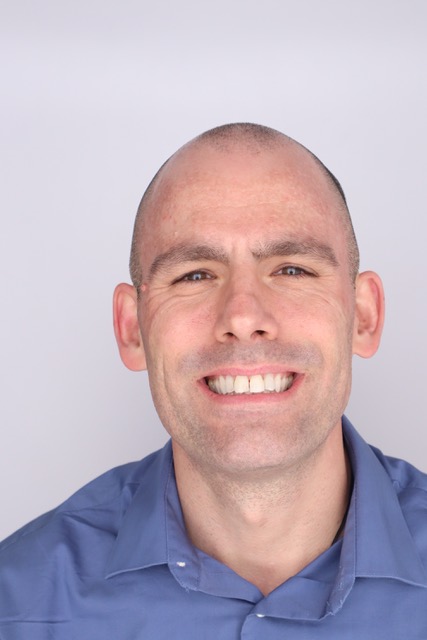
Assistant Professor
Computer and Data Sciences
1. How did you end up pursuing engineering?
My parents bought the family a computer and I just really enjoyed tinkering with it. One of the moments that really got me interested in computing was when I was in middle school, I created my own web page in HTML and posted it on a community hosting service called Geocities and people around the world could see it.
2. What are your specific teaching and/or research areas and interests?
I am interested in both mobile and Internet of Things and how these areas can be used to benefit the community. I am also interested in security and privacy and how we can keep our systems and data safe.
3. What are you most looking forward to at Case Western Reserve University?
Building relationships with the campus community and walking around campus!
4. Do you have any personal goals, hobbies, family, interests that you would like to share?
I really enjoy hiking and being outdoors in nature and spending time with my family where my kids allow me to be a kid again.
5. What’s one piece of advice you have for students?
Realize that nobody was born a programmer, mathematician, etc. I want students to realize that some people will enter college with different backgrounds and may be more prepared than others, and that is OK. Stick with it if it is what you are passionate about and embrace a growth mindset. Also, seek help from your professors—we want to see you succeed!
Andrew Watkins
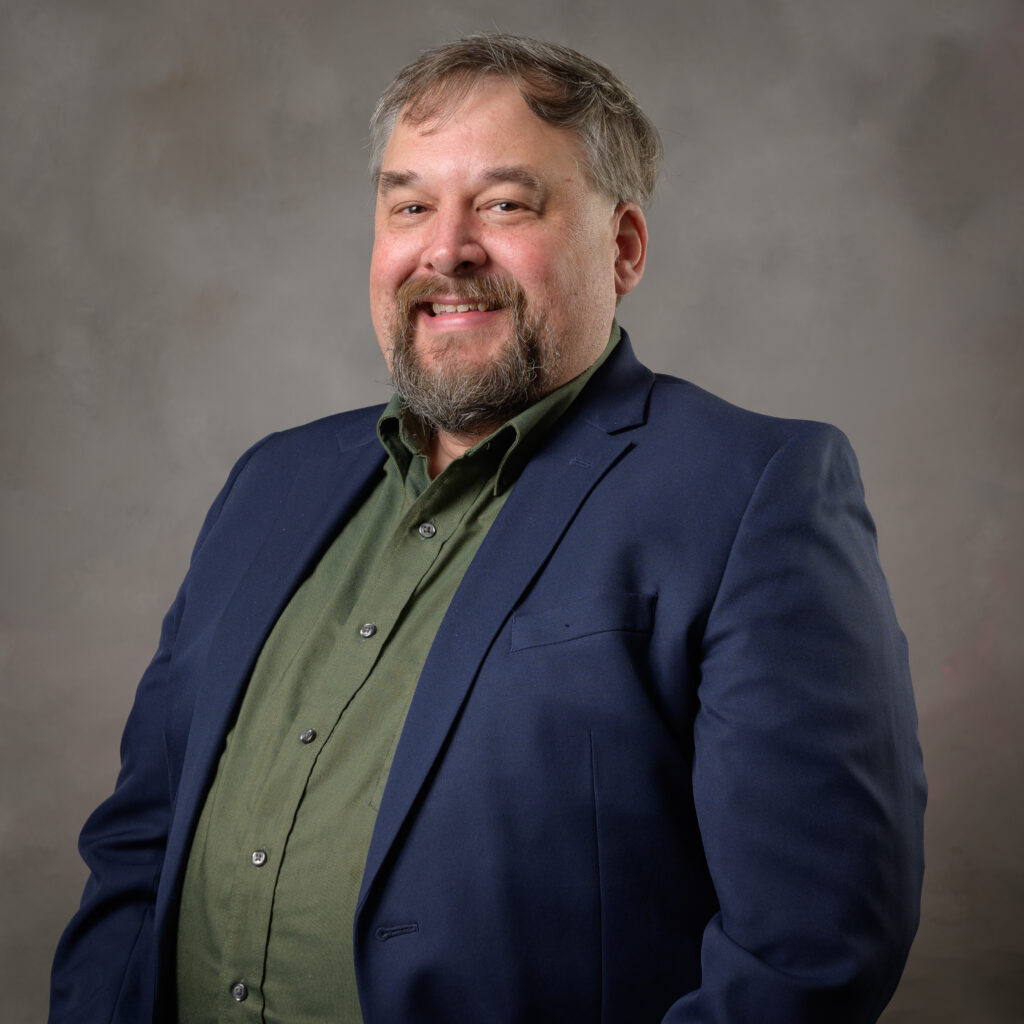
Associate Professor
Computer and Data Sciences
1. How did you end up pursuing engineering?
My early love was literature and language. However, I have always been fascinated by computers—what can be done with technology, how computing can mimic and enhance what we do as humans, how mastering technology can change a person’s life and give them agency. Some of my favorite things about computer science are the in-between areas—the interplay between the humanities and computing, in particular, as well as the ways computer science has often looked outside of itself as a discipline for inspiration in tackling problems.
2. What are your specific teaching and/or research areas and interests?
I really enjoy teaching students who are just beginning to explore computer and data science, and I’m a big advocate for the applicability of computational thinking and computing skills to all disciplines. My current research project involves examining ways of creating welcoming and inclusive computer science transfer pathways between community colleges and primarily undergraduate institutions in Ohio. Specifically, I’m interested in mechanisms that can help increase and sustain the number of women studying computer science throughout this network of institutions.
3. What are you most looking forward to at Case Western Reserve University?
For the last decade I was teaching at a primarily undergraduate institution. I’m looking forward to being at a research-intensive university again and the energy that kind of focus on knowledge creation brings. What I’m most looking forward to is getting to know a new group of students and learning how I can help them along the way to their academic and career goals.
4. Do you have any personal goals, hobbies, family, interests that you would like to share?
When I have time, I enjoy reading, with a particular fondness for speculative fiction. I also enjoy the occasional hike with the Cleveland area having so many great paths for all levels of hiker. I have two daughters, with my older daughter entering her senior year in high school and my younger daughter just starting high school.
5. What’s one piece of advice you have for students?
Get to know your professors. I know it can be daunting with larger classes, but I’d encourage students to try to engage with faculty beyond the classroom as it will greatly enhance their experience.
Luke E. Osborn
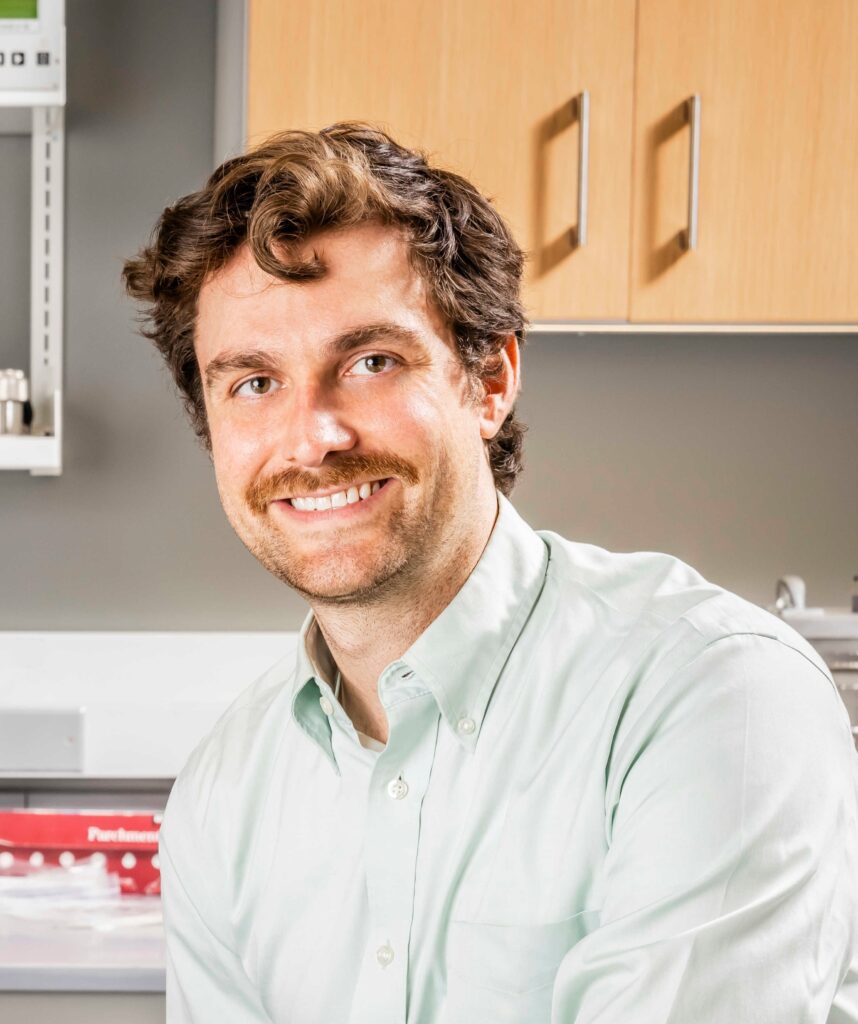
Assistant Professor
Biomedical Engineering
1. How did you end up pursuing engineering?
I grew up targeting a career in baseball. I chose to pursue engineering in college because I liked building things and wanted to learn how things worked, but I was still secretly hoping for a career as an athlete. I’m glad I stuck with engineering and decided to pursue graduate school because I was hooked on this idea of designing and building robots that could help people. My favorite thing about engineering was realizing that I had the tools to design, create, and build new things.
2. What are your specific teaching and/or research areas and interests?
Neuroengineering, biomedical instrumentation, wearable devices, human function and performance, sensory perception and human-machine interfaces.
3. What are you most looking forward to at Case Western Reserve University?
Meeting new people, growing exciting research collaborations and the winter.
4. Do you have any personal goals, hobbies, family, interests that you would like to share?
I like cycling, sailing and being outdoors (hiking, running, etc).
5. What’s one piece of advice you have for students?
If you want a second opinion, just ask again.
M. Hassan Najafi
Assistant Professor
Electrical, Computer, and Systems Engineering
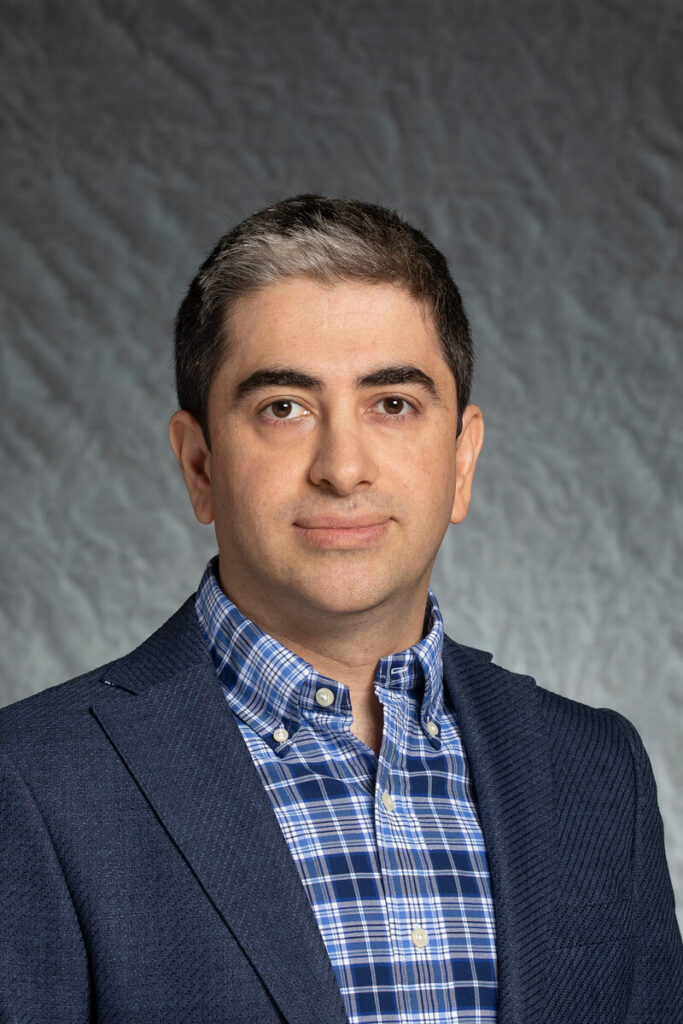
1. How did you end up pursuing engineering?
I was always fascinated by how things work, particularly in the realm of technology. This fascination only grew stronger as I delved into more complex concepts during my studies. The idea of creating something that can have a tangible impact on the world continues to drive my passion for emerging areas in computer engineering. My favorite thing about this field is the blend of creativity and logic required to solve real-world problems.
2. What are your specific teaching and/or research areas and interests?
I’m interested in teaching undergraduate and graduate courses in VLSI design, computer architecture, digital logic, embedded systems, and electronic design automation. My primary research areas include emerging design technologies, brain-inspired hyperdimensional computing, stochastic and unary computing, in-memory computing, near-sensor processing, machine learning, and low-power VLSI design.
3. What are you most looking forward to at Case Western Reserve University?
I’m most excited about the collaborative environment and the opportunity to work alongside brilliant faculty and students. The university’s strong emphasis on interdisciplinary research aligns perfectly with my interest in exploring cutting-edge computing technologies, such as hyperdimensional computing and near-sensor processing. I’m also eager to contribute to the academic community by mentoring students and helping them navigate their research journeys.
4. Do you have any personal goals, hobbies, family, interests that you would like to share?
I’m passionate about staying active and exploring new places. Whether it’s going for a long walk or a hike, I find that being outdoors is a great way to clear my mind and stay energized.
5. What’s one piece of advice you have for students?
One of the most valuable pieces of advice I’ve received came from a Nobel laureate, Dr. Eric Cornell, who emphasized the importance of constantly seeking new ideas and not being afraid to explore uncharted territories. He pointed out that the research we’re deeply involved in today could be obsolete in a decade. This really resonated with me and is something I always keep in mind.
To students, I would say: don’t be afraid to venture beyond your comfort zone. Innovation often happens at the intersection of disciplines or when we dare to challenge established norms. Be curious, stay open-minded, and don’t shy away from pursuing unconventional paths.
Neamul H. Khansur
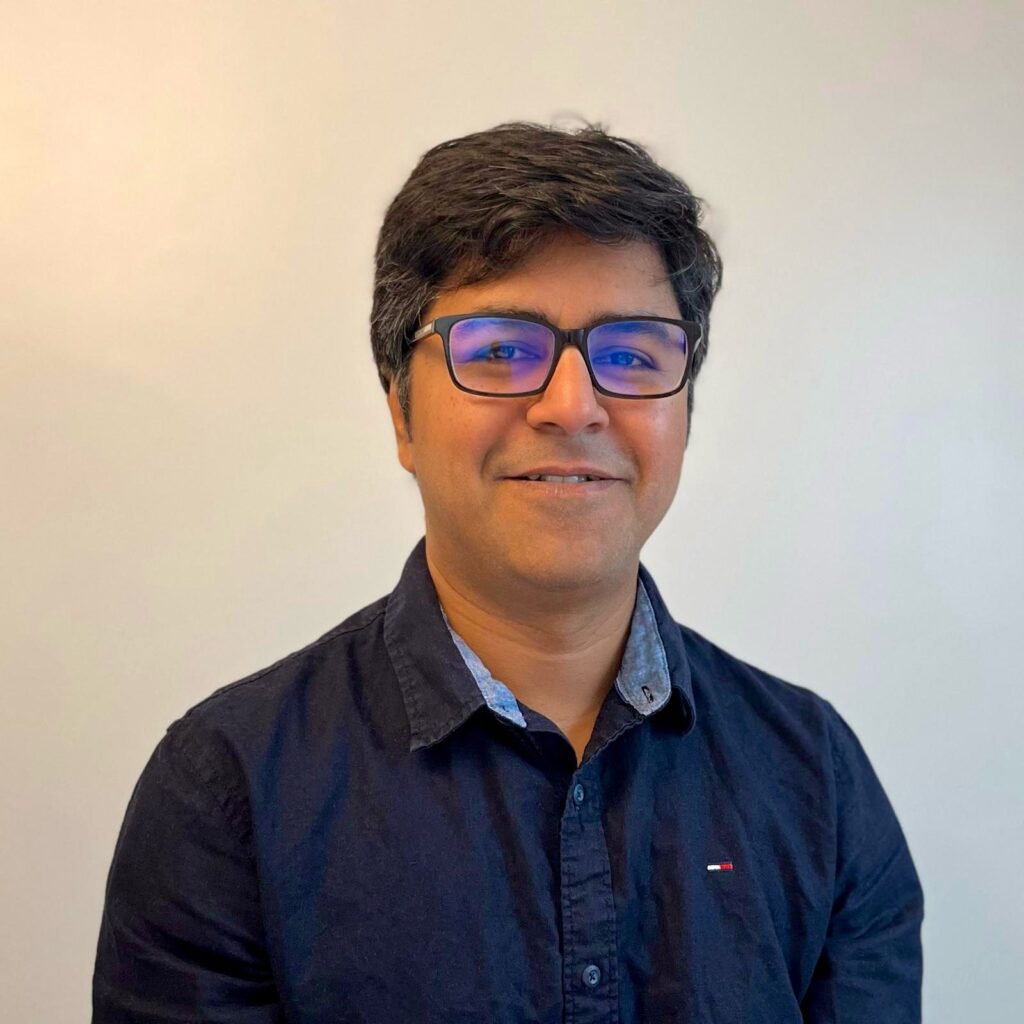
Assistant Professor
Materials Science and Engineering
1. How did you end up pursuing engineering?
As a high school student, I learned about the working principle of quartz watches and heard about the term “piezoelectricity” and the existence of piezoelectric effect in quartz crystal. Numerous functional properties of advanced solid state materials and their real-world applications was the main driving force for me to focus on the materials engineering.
2. What are your specific teaching and/or research areas and interests?
I am interested in understanding the structure-property relationships in inorganic functional materials with specific focus on the investigation of microscopic origin of macroscopic properties. My teaching focus is on the fundamentals of engineering materials and advanced structural characterization techniques.
3. What are you most looking forward to at Case Western Reserve University?
I am looking forward to working with the undergrad students. I am also interested in establishing collaboration with different research groups.
4. Do you have any personal goals, hobbies, family, interests that you would like to share?
I like to play badminton and my favorite sport is cricket. As a family, we like trekking and generally the little one of our family decides the direction.
5. What’s one piece of advice you have for students?
The advice I found very helpful was: Find the balance between thinking and acting.
Peng Wang
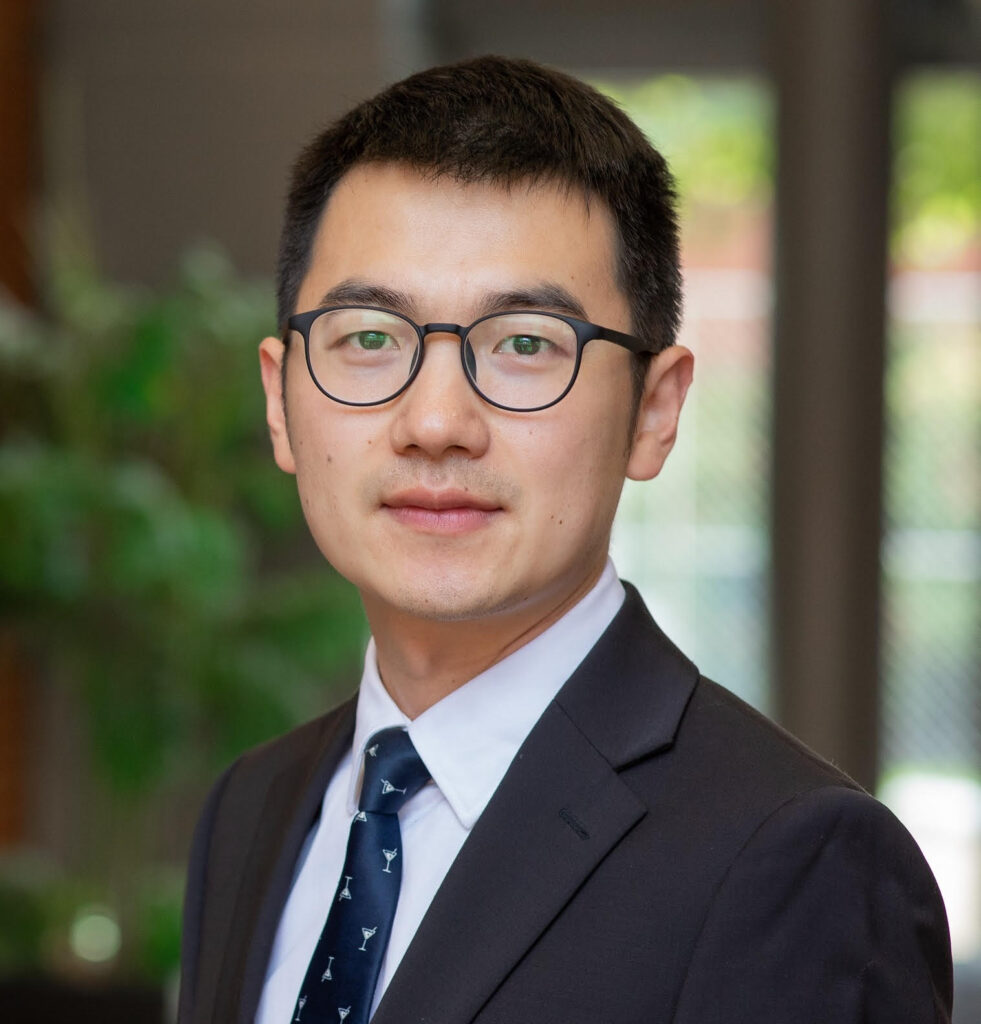
Associate Professor
Mechanical and Aerospace Engineering
1. How did you end up pursuing engineering?
For me, the engineering process is a journey of discovery and innovation. It begins with the critical step of identifying a problem—understanding the needs, challenges, and potential impact. From there, moving into the design phase, I get to explore creative solutions, turning abstract concepts into practical prototypes. Building and testing these prototypes is another aspect I find incredibly rewarding. Finally, delivering a well-engineered solution is a moment of pride and fulfillment. Every step is an opportunity to innovate, improve, and ultimately contribute to the betterment of society.
2. What are your specific teaching and/or research areas and interests?
Aiming at data science-enhanced manufacturing for improved operational safety, process stability, efficiency, quality assurance, and sustainability, I launched the “Augmented Intelligence for Smart Manufacturing (AISM)” lab at the University of Kentucky in Fall 2019, and moved the lab to Case Western Reserve University (CWRU) in August 2024. The mission of AISM is to explore state-of-the-art machine learning and artificial intelligence techniques and advance them through integrating with manufacturing domain knowledge, creating augmented intelligence suitable for manufacturing data analytics, pattern recognition, and decision-making.
Regarding teaching, I have a passion in developing and integrating machine learning and data analytics related courses, considering that the next-generation engineers should be prepared with multi-disciplinary knowledge.
3. What are you most looking forward to at Case Western Reserve University?
I am excited about the research platform and multi-disciplinary research collaboration available on campus. Specifically, I am very thankful to have a hybrid additive manufacturing machine, which integrates direct energy deposition-based metal additive manufacturing with subtractive manufacturing and various inline process sensing tools.
I look forward to equipping our engineering students with essential machine learning and data analytics skills, to broaden their job opportunities after graduation and enhance their research capabilities through more project and research experiences.
4. Do you have any personal goals, hobbies, family, interests that you would like to share?
I like running, swimming, and skiing. One thing that I really look forward to is skiing in Cleveland, as there are a couple of ski resorts in the Cleveland area (I already purchased the Epic seasonal pass!). More interestingly, the number of my hobbies is increasing annually; I started playing piano last year, and plan to learn drawing this year. I have a lovely dog, Mandy, a miniature Schnauzer. She is very smart in understanding our expressions and feelings. She is bilingual and brings a lot of joy to my family.
5. What’s one piece of advice you have for students?
Life is short, so we’d better try our best to find the joys in the classroom and get a job that really matches our interests or aligns with our life journey goals. It’s inevitable to encounter difficulties and challenges here and there throughout our lives, but we should make sure at least most parts of our life journey are enjoyable. Just be positive!
Ana G. Hernandez Reynoso
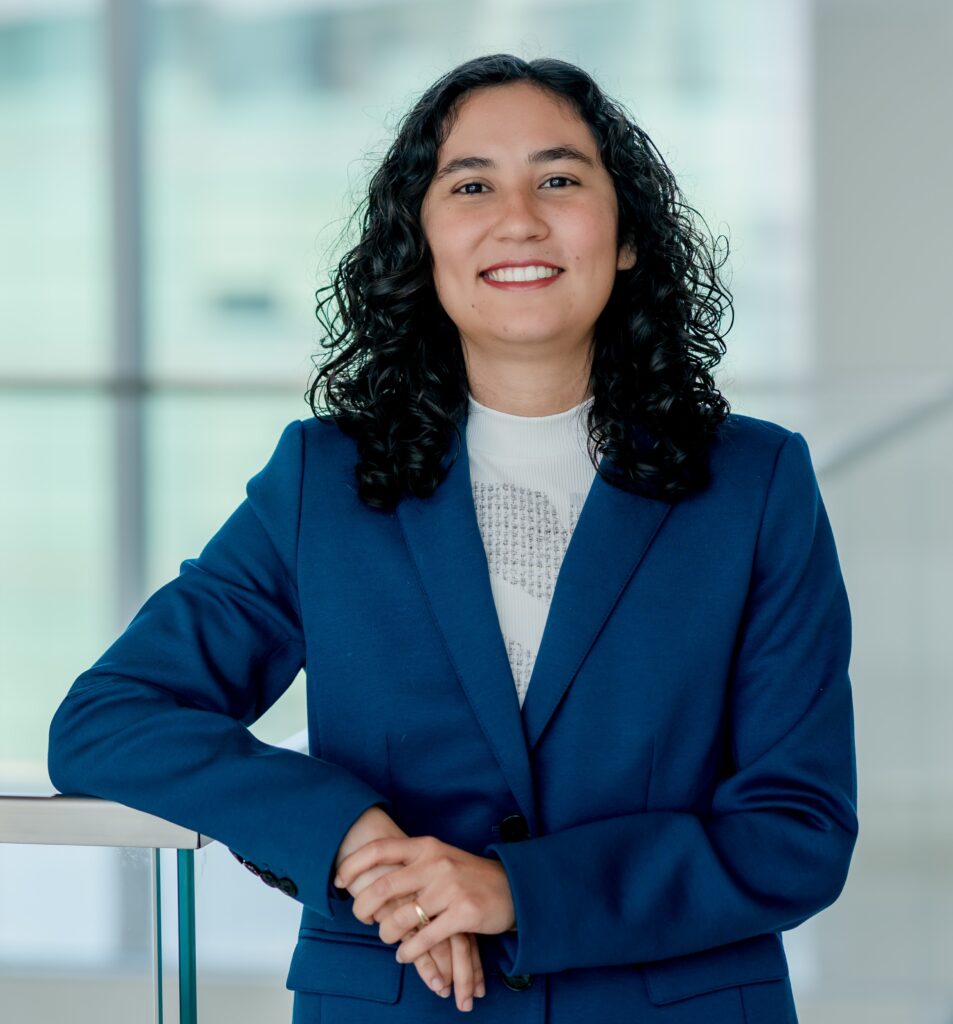
Assistant Professor
Biomedical Engineering
1. How did you end up pursuing engineering?
I wanted to be a medical doctor, but after spending some time with a cousin who is an engineer, I realized that I really enjoyed the convergence between medicine and engineering, so I pursued biomedical engineering. After spending time abroad, I discovered that neural engineering was an exciting field. With the incredible support of my mentors, I decided to pursue a career around neural recording and stimulation for the development of new approaches to treat neurological injury or disease.
2. What are your specific teaching and/or research areas and interests?
Neural engineering, in particular; delivering electrical pulses to the nervous system in an attempt to restore function after neurological injuries such as spinal cord injury.
3. What are you most looking forward to at Case Western Reserve University?
Being part of a large and strong team of individuals who are passionate about advancing the neural engineering field, and a school with many years of excellence. In addition, I look forward to working with undergraduate and graduate students, and am also excited to be able to participate in their academic training. I am also interested in the wonderful outreach opportunities, especially those serving the Hispanic and female communities as a role model.
4. Do you have any personal goals, hobbies, family, interests that you would like to share?
I enjoy swimming, and at some point in my life, I was part of the university’s swimming club; however I was never very fast—just enjoyed the sport. I like to travel and have a severe case of FOMO (fear of missing out) so our trips are usually packed with activities and I sometimes feel like I need a vacation from the vacation.
5. What’s one piece of advice you have for students?
Be consistent with effort invested and open to new projects and ideas. Try to establish long-term goals early in your career, and be strategic about your moves. Most career steps that you make should contribute to your professional growth and bring you closer to that long-term goal. However, be flexible about adapting career goals—the more you experience, you may find out that there are other career paths that bring you more joy.
Chengyu Li
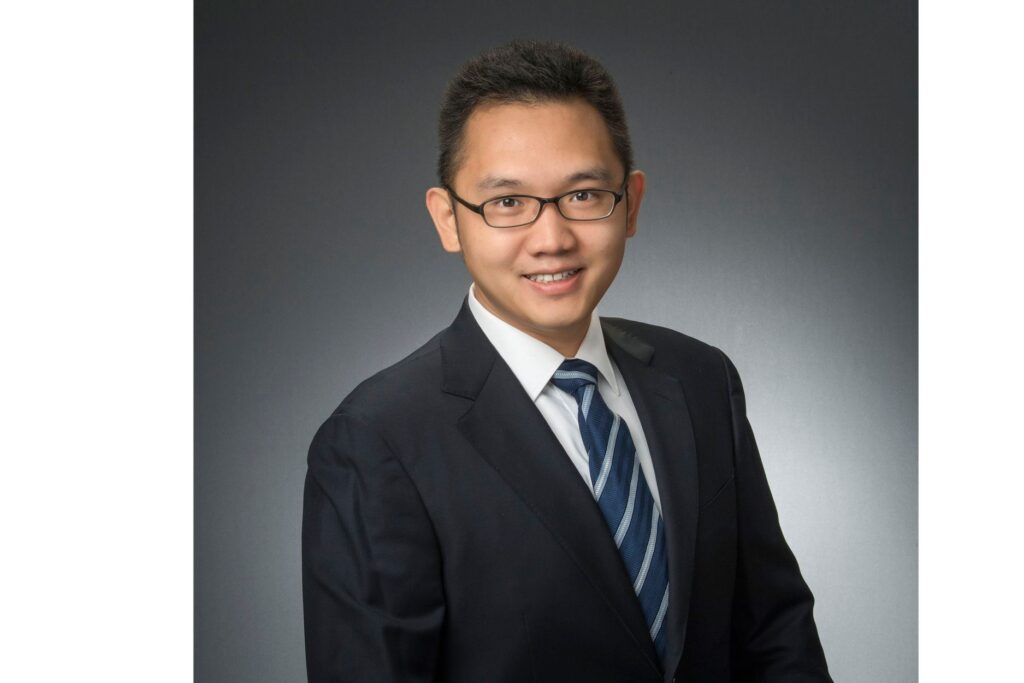
Associate Professor
Mechanical and Aerospace Engineering
1. How did you end up pursuing engineering?
My journey into engineering began with a curiosity about the natural world. I have a strong background in computational fluid dynamics, which I use to develop specialized computational tools. These tools help us explore and understand the complex flow physics and transport phenomena that occur in both nature and the human body—ranging from how flying and swimming animals move to how human respiratory and cardiovascular systems function.
2. What are your specific teaching and/or research areas and interests?
Computational fluid dynamics .
3. What are you most looking forward to at Case Western Reserve University?
At CWRU, the opportunity for interdisciplinary collaboration is vast, especially between departments. These collaborations can lead to exciting advancements at the intersection of engineering and the life sciences.
4. Do you have any personal goals, hobbies, family, interests that you would like to share?
Supporting my students in their journey towards becoming faculty members one day and creating a lasting impact on their careers and the academic community.
5. What’s one piece of advice you have for students?
Embrace curiosity and never stop asking questions.
Hamid Charkhkar
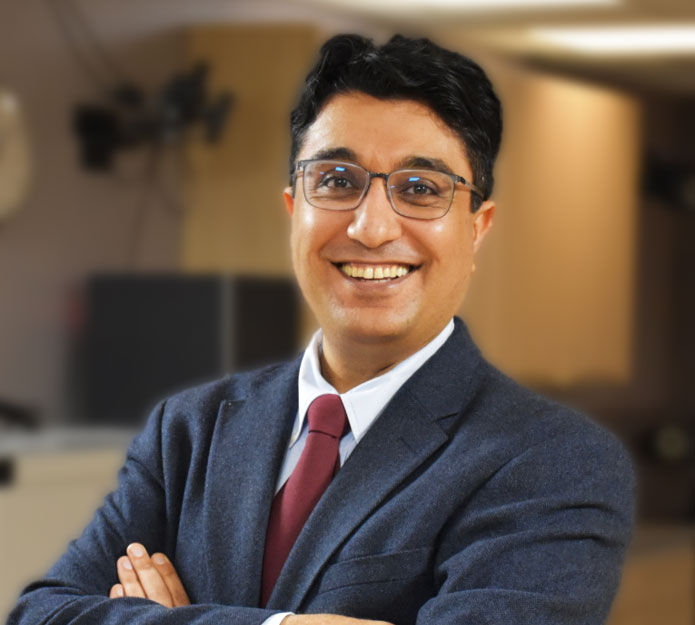
Assistant Professor
Biomedical Engineering
1. How did you end up pursuing engineering?
My journey into engineering began with a fascination for electrical motors and circuits, and later to neural engineering—a field that perfectly bridged my interests in electrical systems and biology. The concept of the human nervous system as a complex, giant circuit communicating through electrical pulses captivated me. As my studies progressed, I became increasingly interested in the clinical applications of neural engineering, particularly in how it could be used to improve the lives of people with disabilities. This focus has allowed me to work with diverse, multidisciplinary teams comprising scientists, physicians, and fellow engineers.
What I love most about engineering, especially in the context of neural applications, is our approach to problem-solving. We’re not afraid to innovate, to break things apart and reassemble them in new ways. This mindset of continuous improvement and creative solution-finding is what drives me.
2. What are your specific teaching and/or research areas and interests?
My research is centered on the cutting-edge field of assistive technologies, specifically focusing on restoring lower limb sensorimotor function in individuals who have experienced limb loss or other neuromusculoskeletal dysfunctions. In the Restoring Lower Limb Neural Connection (ReLLiNC) laboratory, which I lead, we’re pioneering efforts to seamlessly integrate artificial limbs with the human body. Our primary goal is to bridge the gap between prosthetic devices and the peripheral nervous system.
In terms of teaching, I’m excited about the opportunity to share my knowledge and passion with students. I look forward to teaching courses that cover a range of relevant topics, including bioinstrumentation, biomechanics and prosthetics, neural interfaces, and neural engineering.
3. What are you most looking forward to at Case Western Reserve University?
I’m looking forward to engaging with the students. Interacting with such talented students will not only allow me to share my knowledge but also inspire new, innovative ideas in our field.
Secondly, I’m thrilled about the prospect of collaborating with my colleagues, both within and beyond my department, and contributing to and becoming part of the CWRU community. The university’s commitment to addressing global challenges through research and education aligns perfectly with my own goals as a researcher and educator.
4. Do you have any personal goals, hobbies, family, interests that you would like to share?
In my free time, I enjoy hiking and taking long walks with my dog. These outings give me a chance to unwind while listening to audiobooks or podcasts, which I find both relaxing and intellectually stimulating. My wife and I also share a love for exploring Cleveland’s food scene. We enjoy discovering new restaurants, cafes, and small shops around the city. It’s our way of experiencing the local culture and supporting community businesses.
5. What’s one piece of advice you have for students?
Get involved in research as early as you can. Don’t be afraid to ask questions—in fact, asking questions is a crucial part of the learning process. Remember, it’s perfectly okay not to know everything. What’s important is maintaining your passion for learning and discovery.
In research and in life, curiosity and persistence often lead to the most rewarding experiences. Embrace the journey of learning, even when it feels challenging.
Xiaotian Han
Assistant Professor
Computer and Data Sciences
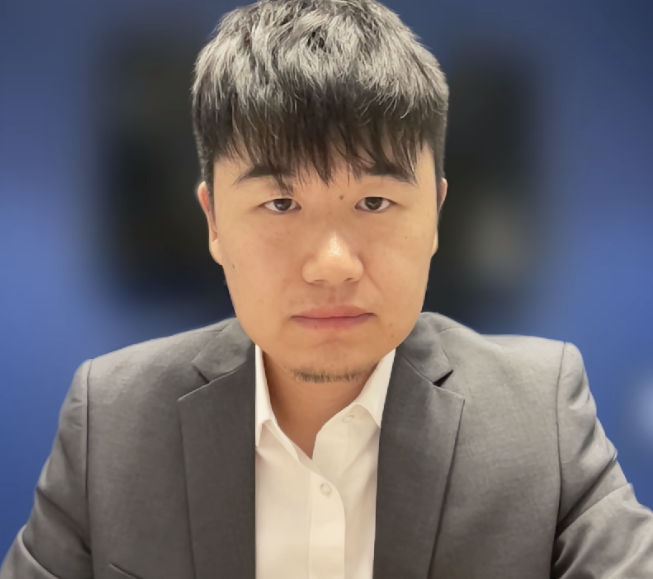
1. How did you end up pursuing engineering?
I am passionate about leveraging cutting-edge AI techniques to solve complex problems and push the boundaries of what technology can achieve. My research interests lie in the general area of artificial intelligence, machine learning and data science, and recently Large Language Models (LLM).
2. What are your specific teaching and/or research areas and interests?
Advanced topics in machine learning and their applications. My work aims to bridge theoretical advancements with practical implementations, making AI more efficient, reliable, and accessible.
3. What are you most looking forward to at Case Western Reserve University?
I’m particularly excited about the collaborative opportunities within the university’s diverse and interdisciplinary community. I get to bring my knowledge of machine learning and artificial intelligence to this energetic interdisciplinary research community.
4. Do you have any personal goals, hobbies, family, interests that you would like to share?
I would like to study and catch up on the latest developments in machine learning and artificial intelligence; help my students achieve their goals; conduct innovative research; and make a positive social impact.
5. What’s one piece of advice you have for students?
My advice for students is: Embrace the cutting edge of AI technology. Don’t just learn the theory—get hands-on experience. Try coding your own neural networks and experiment with training them.

